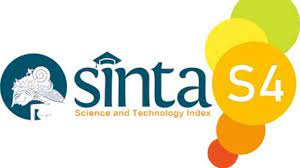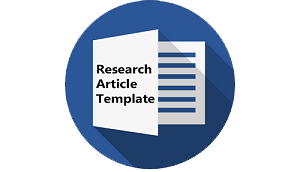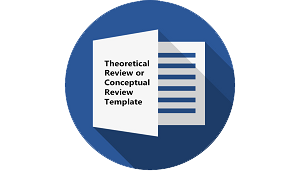Jokowi's Opinions and Attitudes towards Covid-19 in Indonesia: A Critical Discourse Analysis
DOI:
https://doi.org/10.30957/ijoltl.v6i2.671Keywords:
Jokowi, opinion, Covid-19, speech, Critical Discourse Analysis (CDA)Abstract
This study aims to investigate the discourse structure, social cognition, and social context of Jokowi’s speech about Covid-19 which partly represents Jokowi’s opinion and attitudes towards Covid-19 in Indonesia. The method used is qualitative research that employs critical discourse analysis (CDA) as its design of analysis. The CDA used in this research focuses on Van Dijk concept. The data collected was from the video of his speech entitled Pandemi: Fakta dan Data, Bukan Kira-Kira on Presiden Joko Widodo YouTube channel and then transcribed into texts. The results show that Jokowi’s speech about Covid-19 presents all elements of the discourse analysis concept proposed by Van Dijk including text structure, social cognitive, and social analysis. The speech focuses on the perspective of Jokowi about Covid-19. The strength, the power, and the purposes of Jokowi can be shown from the languages used. They can truly be felt, expressly seen, and well understood.
Downloads
References
Banikalef, A. (2020). Discourse analysis of Jordanian online wedding invitation cards during COVID-19 pandemic. International Journal of English Linguistics, 10(5), 173-178. https://doi.org/10.5539/ijel.v10n5p173
Chiang, S. Y. (2015). Power and discourse. The International Encyclopedia of Language and Social Interaction, 7(3), 1-17 https://doi.org/10.1002/9781118611463.wbielsi149
Djalante, R., Lassa, J., Setiamarga, D., Sudjatma, A., Indrwan , M., Haryanto, B., . . . Warsilah, H. (2020). Review and analysis of current responses to COVID-19 in Indonesia: period of January to March 2020. Progress in Disaster Science, 6(1), 1-9. https://doi.org/10.1016/j.pdisas.2020.100091
Garrett, L. (2020). COVID-19: The medium is the message. The Lancet Regional Health, 395(10228), 488-490. https://doi.org/10.1016/S0140-6736(20)30600-0
Graham, P. (2018). Ethics in critical discourse analysis. Critical Discourse Studies, 15(2), 168-203. https://doi.org/10.1080/17405904.2017.1421243
Grzelka, M. (2020). Attitudes toward vulnerable populations in the time of COVID-19: critical discourse analysis of Gazeta. Pl online comment sections. Society Reister, 4(2), 121-132. https://doi.org/10.14746/sr.2020.4.2.09
Hasanah, U., Alek, & Hidayat, D. N. (2019). A critical discourse analysis of Kim namjoon’s speech. Jurnal Humaniora Teknologi, 5(2), 16-26. https://doi.org/10.34128/jht.v5i2.60
Joharry, S. A., & Turiman, S. (2020). Examining Malaysian public letters to editor on COVID-19 pandemic: a corpus-assisted discourse analysis. GEMA Online ® Journal of Language Studies, 20(3), 242-260. http://dx.doi.org/10.17576/gema-2020-2003-14
Moudy, J., & Syakurah, R. A. (2020). Pengetahuan terkait usaha pencegahan coronavirus disease (COVID-19) di Indonesia. HIGEIA Journal of Public Health Research and Development, 4(3), 333-346. https://doi.org/10.15294/higeia.v4i3.37844
Mullet, D. D. (2018). A general critical discourse analysis framework for educational research. Journal of Advanced Academics, 29(2), 116-142. https://doi.org/10.1177%2F1932202X18758260
Narasi, (2020). Membaca maksud pernyataan Jokowi soal pandemi | Narasi Newsroom. https://www.youtube.com/watch?v=yQ7CNhX13hQ Accessed on November 3rd 2020
Nasution, D. A., Erlina, & Muda, I. (2020). Dampak pandemi COVID-19 terhadap perekonomian Indonesia . Jurnal Benefita, 5(2), 212-224. https://doi.org/10.22216/jbe.v5i2.5313
Olivia, S., Gibson, J., & Nasrudin, R. (2020). Indonesia in the time of covid. Bulletin of Indonesian Economic Studies, 56(2), 143-174. https://doi.org/10.1080/00074918.2020.1798581
Sari, D. K., Amelia, R., Dharmajaya, R., Sari, L. M., & Fitri, N. K. (2020). Positive correlation between general public knowledge and attitudes regarding COVID 19 outbreak 1 month after first cases reported in Indonesia. Journal of Community Health, 1-8. https://doi.org/10.1007/s10900-020-00866-0
Setiati, S., & Azwar, M. K. (2020). COVID-19 and Indonesia. Acta Medica Indonesiana, 52(1), 84-89.
Shalihah, N. (2020). Total 1,9 juta pekerja di-phk dan dirumahkan akibat pandemi virus corona. Jakarta: Kompas.com. https://www.kompas.com/tren/read/2020/04/19/081000465/total-19-juta-pekerja-di-phk-dan-dirumahkan-akibat-pandemi-virus-corona Accessed on December 1st 2020.
Singhal, T. (2020). A review of coronavirus disease-2019 (COVID-19). The Indian Journal f Pediatrics, 87(2), 281-286. https://doi.org/10.1007/s12098-020-03263-6
Suryahadi, A., Izzati, R. A., & Suryadarma, D. (2020). Estimating the impact of COVID-19 outbreak on poverty. Bulletin of Indonesian Economic Studies, 56(2), 1-33. https://doi.org/10.1080/00074918.2020.1779390
Tannen, D., Hamilton, H., & Schiffrin, D. (2015). The handbook of discourse analysis. New Jersey: John Wiley & Sons.
Tulgar, A. T. (2016). The role of pragmatic competence in foreign language education. Turkish Online Journal of English Language Teaching (TOJELT), 1(1), 10-19.
Wodak, R., & Meyer, M. (2009). Critical discourse analysis: history, agenda, theory and methodology. Methods of critical discourse analysis, 67(2), 1-33.
Xie, Q. (2018). Critical discourse analysis of news discourse. Theory and Practice in Language Studies, 8(4), 399-403. http://dx.doi.org/10.17507/tpls.0804.06
Zafar, I., Aslam, M. Z., Aslam, T., Ashraf, R., Kashif, M., & Nasir, H. (2020). Persuasive power concerning COVID-19 employed by premier imran khan: a socio- political discourse analysis. Register journal, 13(1), 208-230. https://doi.org/10.18326/rgt.v13i1.208-230
Zhao, X. (2020). A discourse analysis of quotidian expressions of nationalism during the COVID-19 pandemic in Chinese Cyberspace. Journal of Chinese Political Science, 1-17. https://doi.org/10.1007/s11366-020-09692-6
Downloads
Published
How to Cite
Issue
Section
License
Authors who publish with this journal agree to the following terms:
- Authors retain copyright and grant the journal right of first publication with the work simultaneously licensed under a Creative Commons Attribution-ShareAlike 4.0 International License that allows others to share the work with an acknowledgement of the work's authorship and initial publication in this journal.
- Authors are able to enter into separate, additional contractual arrangements for the non-exclusive distribution of the journal's published version of the work (e.g., post it to an institutional repository or publish it in a book), with an acknowledgement of its initial publication in this journal.
- Authors are permitted and encouraged to post their work online (e.g., in institutional repositories or on their website) prior to and during the submission process, as it can lead to productive exchanges, as well as earlier and greater citation of published work (See The Effect of Open Access).












